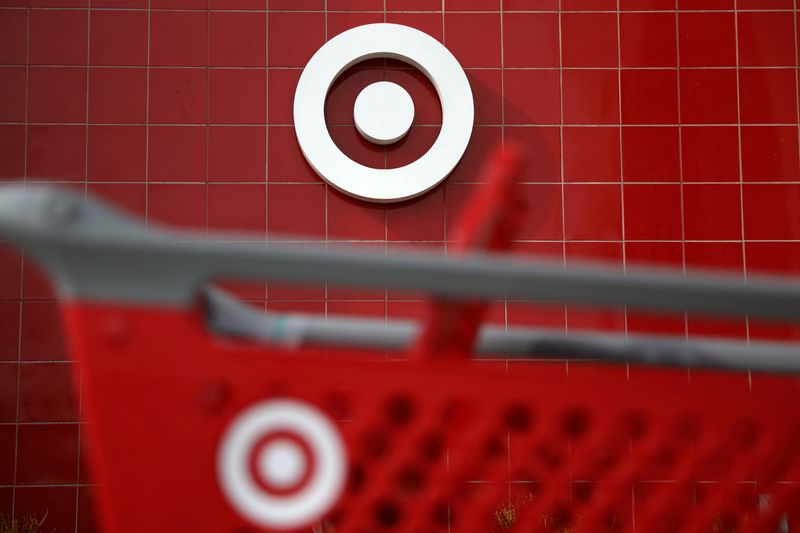Analysis-Target's holiday advertising push will only take it so far, investors say

By Siddharth Cavale
NEW YORK (Reuters) - In the most competitive holiday season in years, major U.S. retailers Target (TGT) and Walmart (WMT) are spending more on ads to reach shoppers on short-video app TikTok and streaming platforms.
But while recent U.S. credit- and debit-card data point to a small gain for Target, with its shoppers spending slightly more in early December than a year ago, there's little that the Minneapolis-based chain can do this year to reverse the trends that have put it at a disadvantage, investors told Reuters.
With more than 1,950 stores across the United States, and an array of mostly non-essential merchandise, Target has lost market share following waning sales. Target's shares have fallen 7% this year, compared to Walmart's 72% gain.
"Target's funk has been in place for a couple of years now and doesn't have a quick fix," said Charles Sizemore, chief investment officer of Sizemore Capital Management, which owns $220,000 in Target shares.
"Would a late surge in advertising encourage shoppers to spend their gift cards at Target before year end? Maybe," Sizemore said. "I wouldn't necessarily bet on that."
Many retailers have kept a tight lid on spending as shoppers cut back on non-essential purchases. D.A. Davidson analysts expect Target's net advertising spending to rise only 0.11% overall in 2024.
"The fourth quarter is our biggest sales season of the year, and our marketing spend reflects that," a Target spokesperson said, declining further comment.
From October through mid-December, Target spent 8% more on online advertising, compared to the same period a year earlier, including 70% more on TikTok to reach younger spenders, according to data from market intelligence firm Sensor Tower, which tracks online ad spending. But Walmart boosted its online advertising outlays by 30% during the same period, with a 200% increase in spending on TikTok.
Target's modest bump in advertising started in October when it began pitching its Circle Week deals, a week later than last year, Kara Lee, brand and digital advertising analyst at Sensor Tower, said.
In late November, Target forecast holiday-quarter comparable sales and profit below estimates as value-conscious consumers shopped for low-priced essentials at rival retailers including Walmart. Target's subsequent sales on Black Friday and Cyber Monday weren't particularly strong, according to third-party data measuring credit- and debit-card spending trends.
In the two weeks after Cyber Weekend, the shopping period from Thanksgiving through Cyber Monday, however, Target stepped up its digital advertising, spending 12% more compared to the two weeks leading up to Thanksgiving, and bought more spots on streaming platforms like Peacock and Hulu, Sensor Tower data shows.
Breaking news
See all






